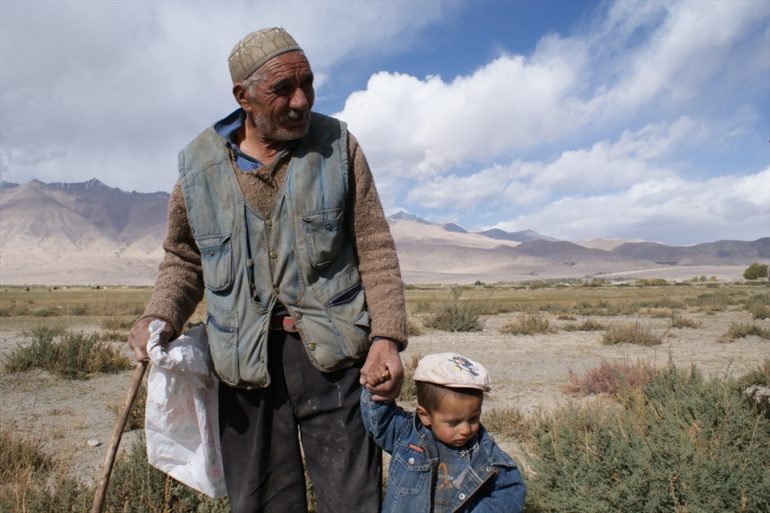As a rally in support of China’s prisoners of conscience took place in the streets of Washington DC last week, an ongoing Chinese government crackdown on its Uyghur-people in Xinjiang province is tearing both Muslim and Christian families and communities apart.
The rally, hosted by five rights groups in the United States and held last Thursday (12 July), called for renewed attention to the hundreds of thousands of Chinese held because of their political, religious or other conscientiously held beliefs.
Among them are the ethnic Turkic-speaking Muslim-majority Uyghur people in China’s north-western Xinjiang Uyghur Autonomous Region. Ever since ethnic riots in 2009 in the regional capital, and a wave of high-profile Chinese train station bombings attributed to Uyghurs, the area has been restive.
Since 2017 the government has initiated an “anti-terror” campaign here, against what it calls the rising threat of terrorism and separatism.
Hundreds of thousands – reports say it might be over a million – Uyghur and Kazakh men have been rounded up and taken to ‘re-education Centres’, also known as “study centres” or “mind-transformation centres”, where they are detained for weeks or even months.
“The centres are instruments of an unprecedented cultural cleansing of these primarily Islamic ethnic minorities. ‘Inmates’ are forced to abandon their own language, speak only Chinese, sing patriotic Communist songs, renounce their religion, declare allegiance to the Chinese government, and support national unification,” a local source, who did not wish to be named, told World Watch Monitor.
No answer
Although most of those detained have a Muslim background, those who have converted to Christianity have also been caught up in the crackdown.
Many are arrested during surprise raids and taken to an unknown location, leaving wives and children in uncertainty and often without any income, forcing them to live off their savings.
“They are scrambling to make sense of what has happened and are forced to dig deep, to find the faith and courage to push on with life”, according to the source, who recently visited the area.
“They are desperate for news of their loved ones who have disappeared, and wives have to find some kind of work to pay for food and their children’s education. As religious meetings are forbidden, the Christians are scared to even meet in small groups, and feel very lonely without the usual opportunities to meet,” he said.
Women like Patigul*, whose husband was taken to prison because he is a Christian, have to answer their children’s questions about why God would allow their father to be imprisoned. “For a long time Patigul’s young son couldn’t understand why this was happening and repeatedly asked his mother for answers. Patigul’s replies just never seemed to relieve his sadness,” the source, who met with her, said.

Other children, whose parents or guardians have been taken to the camps, end up in orphanages until their parents are released, as Radio Free Asia reported earlier this month. A local police officer told the broadcaster that in one village, where approximately 40% of the more than 1,700 residents had been taken to re-education camps, some 50 to 60 children had been sent to orphanages.
Mental breakdown
Women are also rounded up. Alitenggul* told rights group ChinaAid she did not recognise her sister after she returned from detention in a so-called “re-education” centre. “She’s had a mental breakdown. In prison, she had to stay on duty for two hours each night, standing next to the wall. The guards forced the Uyghur inmates to kick her head if she refused to comply. She was afraid. She stood up immediately as soon as someone kicked her head. Now, she still wakes and stands up during night. We asked her why, and she answered us that she was on duty. She was forced to take medication and receive vaccinations in prison … Her hair fell out. She is not my old sister anymore. (The government) is so cruel, so cruel,” Alitenggul said.
Although she is no longer in a camp, she is still under surveillance, Alitenggul added. “The family members have to stay with her during the night, because the police break in each night to search her house, suspecting her of hiding guns. The police search the house once a day.”
‘Peaceful and progressing lives’
Helatti Shamarkhan* told ChinaAid that in the camp where he was held, prisoners were divided into three groups: people with religious beliefs, including Christians, people who have travelled abroad, and people who did not comply with government orders.
Many of the vendors who once sold their wares in the Erdaoqiao District and the Grand Bazaar in Xinjiang’s capital Urumqi were also taken to re-education centers because “the police used the excuse that they had been to Turkey years ago”, according to Alitenggul, who said her sister saw some of them in the camp where she was held.
“The government found stamps of the Customs and Border Protection of Turkey on their passports”, Alitenggul said, adding that the gates of both tourist places, famous for ethnic minority souvenirs and clothes, are now closed.
Shamarkhan said that when he returned to his village he found that most of the men had been rounded up and taken to camps and that his relatives had started to speak Chinese instead of their native language.
The clampdown on the Uyghurs in Xinjiang will be discussed at next week’s religious freedom summit in Washington DC, hosted by the US Secretary of State, Mike Pompeo, as the President of the World Uyghur Congress, Dolkun Isa, will be speaking at one of the side events.
The Chinese government has denied the existence of the camps. Chinese Foreign Ministry spokeswoman Hua Chunying told Reuters in April: “Everyone can see that people of all ethnicities in Xinjiang live and work in peace and contentment, and enjoy peaceful and progressing lives.”
(*) Real names withheld for security reasons